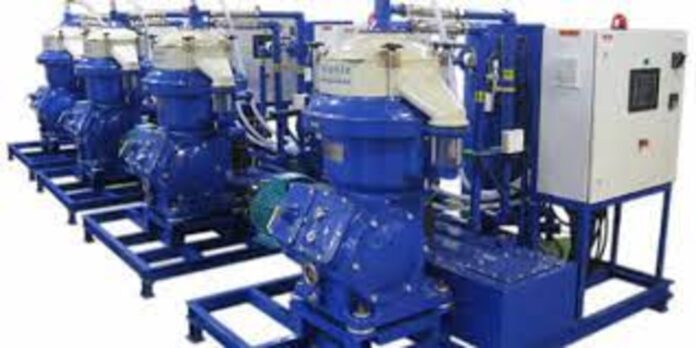Industrial centrifuges are often the most cost-effective solution for many industrial processes. They can save money, time, energy, and water by increasing efficiency in oil and gas, food processing, mining, recycling, and more.
Save Money
Regarding industrial centrifuge and its ability to save money, there are two main factors: the initial cost of purchasing a centrifuge and the savings you’ll see from using your centrifuge long-term.
- The first thing you need to know is that industrial centrifuges are expensive. You can expect an industrial-sized model for general use or specific applications like blood collection or material processing to cost between $10,000-$50,000, depending on size and model. This doesn’t include maintenance costs over time, which will vary based on how often you use your machine (the more often it runs, the more wear and tear). To calculate these “hidden” costs of owning an industrial centrifuge versus just renting one every time you need one, multiply the cost per hour by 2-3 hours per day multiplied by 365 days/year = total annualized cost. For example, if renting an industrial centrifuge costs $1 per hour (assuming 1/2 day of operation), that means about $4K per year! That’s huge—and now imagine if someone else already owns one!
Save Time
A centrifuge can save you time by accelerating the rate at which fluids are separated. Centrifuges can separate fluids quickly, reducing the time spent separating liquids from solids. In addition to speeding up the separation process, a centrifuge can also reduce the number of steps needed for a break.
Conserve Water and Reduce Wastewater
You can use an industrial centrifuge to conserve water in various ways. First, industrial centrifuges can help reduce the amount of wastewater produced in your facility. Industrial centrifuges can also help you reduce the amount of water used in industrial processes, which means less waste for you to treat and dispose of.
Maximize Efficiency
Using an industrial centrifuge to maximize efficiency can reduce downtime and maintenance costs and increase safety and product quality. Investing in an industrial centrifuge may be the solution if you’re looking for ways to make your business more efficient.
You can maximize efficiency in a variety of ways by using industrial centrifuges. For example:
- Increase production—When you have a large number of raw materials and products coming through your facility every day, it’s important that they are processed quickly and efficiently, so they aren’t sitting around wasting time or taking up space unnecessarily. An industrial centrifuge can help speed up this process by separating small particles from larger ones, so they don’t interfere with each other while being processed separately. This saves time on both sides—for example, if one batch takes longer than expected, but there isn’t enough space left over between batches for another batch to start immediately afterward, then everyone involved would have wasted valuable hours waiting around doing nothing until another batch could start up again later today or tomorrow morning after everyone comes back from lunch break.”
Industrial centrifuges money, time, water, and energy.
Industrial centrifuges can be used in various industrial processes, including chemicals, paint and coating, metal finishing, and more. They’re great for separating solids from liquids or materials of different densities. Here are some examples:
- Separating oil from water
- Dewatering sludges and slurries produced by mining operations
- Crushing ore to produce fine particles for further processing
Conclusion
Industrial centrifuges are a handy tool for industrial facilities. Not only do they save money, time, and energy, but they also reduce waste and conserve water. We hope this article has helped you understand the benefits of using industrial centrifuges at your facility or plant.











